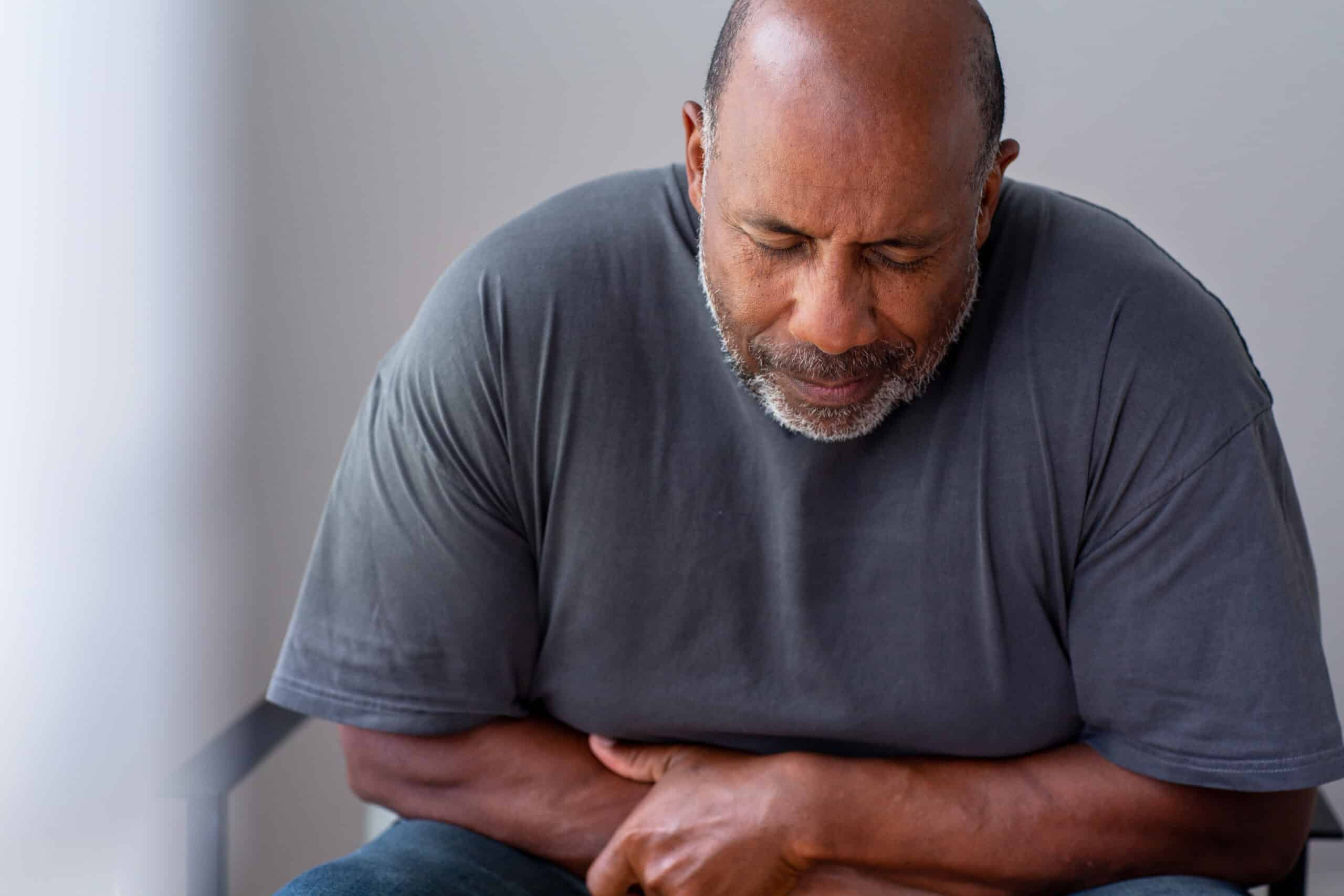
Pancreatic cancer is among the deadliest types of cancer in the United States, with the American Cancer Society (ACS) estimating about 66,440 new diagnoses and 51,750 deaths in 2024.
The five-year survival rate for pancreatic cancer is currently 12 percent. A five-year survival rate is the percentage of people in a study or treatment group alive five years after initial diagnosis or treatment for a disease, such as cancer.
Black Americans have a higher incidence rate of developing pancreatic cancer than white, Asian, and Hispanic Americans, however, Black Americans are also less likely to participate in clinical trials for pancreatic cancer.
Black Americans have a pancreatic cancer incidence rate of 16.2, followed by 13.8 for whites, 12.1 for Hispanics, and 10.1 for Asian/Pacific Islanders per 100,000 people in the United States.
These statistics suggest underlying racial disparities throughout the continuum of pancreatic cancer care, leading Black Americans to have worse health outcomes.
Black Americans have worse pancreatic cancer outcomes
A 2024 study published in the Cureus Journal of Medical Science examined the racial and ethnic composition of patients with pancreatic conditions at the statewide Indiana University (IU) Health system. The study’s goal was to get deeper insights into possible racial disparities in the prevention and early detection of pancreatic cancer.
Researchers pulled data from the IU Health System to determine the racial distribution of pancreatic patients across each of the 17 medical facilities.
The study’s data included the following patients receiving care at IU hospitals:
- 390 patients undergoing surgery for pancreatic cancer
- 972 patients with pancreatic cancer and 1,984 patients with pancreatic disease participating in biobanking (collection of biological samples and health information for research purposes)
- 1,514 patients being monitored for pancreatic cysts at an early detection center
The study’s results revealed that Black Americans receiving pancreatic surgery or participating in biobanking and early detection represented less than five percent of the patient population at IU hospitals.
Few Black Americans are receiving care for their pancreatic cancer
With Black Americans having the highest pancreatic cancer incidence and death rates in the United States, the number of patients within this demographic receiving care at an IU hospital was significantly low.
For example, out of 972 patients receiving surgery for pancreatic cancer, only 18 were Black, compared to 359 being white.
Also, among 1,514 new or existing patients at the UI Pancreatic Cyst and Cancer Early Detection Center, only 63 identified as Black, compared to 1,361 (90%) who were white.
Researchers also obtained responses from 712 IU pancreatic patients who completed a volunteer registry through an online survey. The survey’s responses were used to analyze racial disparities and any differences in decision-making related to pancreatic cancer prevention and early detection.
The survey asked pancreatic patients about:
- Personal healthcare
- Pancreatic cancer experience and awareness
- Two hypothetical situations and potential barriers to care
- Demographics (i.e., age, sex, gender, race, ethnicity, zip code, household income, and education level)
The majority of total respondents (57%) did not think that the number of people diagnosed with pancreatic cancer differed by race, while 32 percent did believe race was a significant factor.
The survey also revealed connections between race and education, income, and residence classification from the survey. The results showed that more Black Americans had a lower level of education and income and lived in an urban area than white Americans.
Early detection and clinical trials are key
Data from IU hospitals and the survey revealed that not only do racial disparities exist for pancreatic cancer but also during the continuum of care, including prevention and early detection.
The study’s researchers think there’s a need for more outreach and health education about pancreatic cancer in the Black community to increase awareness of prevention and detection.
They also encourage Black Americans to participate in biobanking and clinical trials to lower their incidence and death rates from pancreatic cancer. More diverse representation in clinical trials can improve health outcomes and lead to more inclusive research.
For those interested in participating in a research study, BDO’s Clinical Trial Resource Center and ClinicalTrials.gov helps connect people with researchers who are recruiting eligible participants across the United States.









